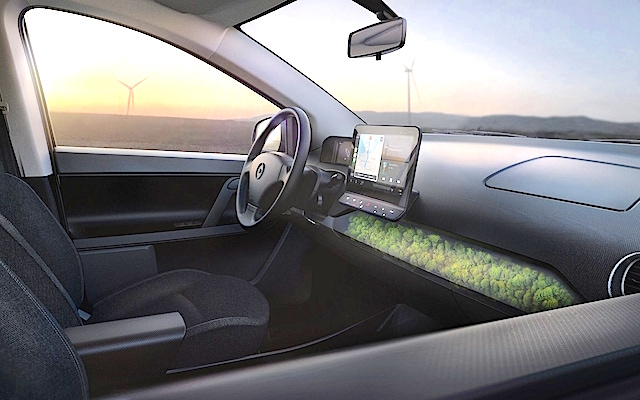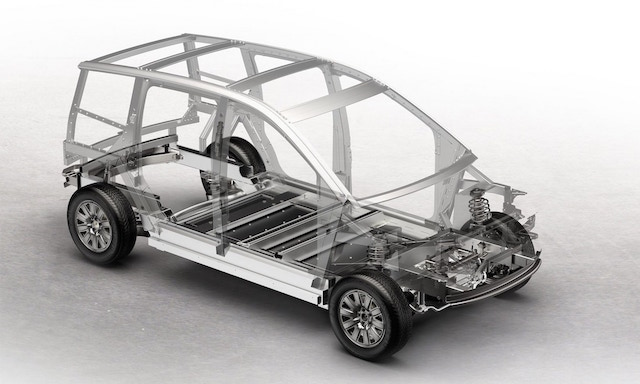
Under the skin of this ordinary looking people-mover is what its developers label as extraordinary – 248 solar cells that can fully recharge its lithium-ion battery pack or, in other words, effectively refuel itself. That is as long as it’s parked under the sun.
It’s the Sion, a five-seat, 4900mm-long, battery-electric MPV built by German start-up Sono Motors at the former Saab factory in Trollhattan, Sweden. Sion is a Hebrew word meaning ‘highest point.’
Sono Motors is based in Munich and backed by National Electric Vehicle (NEVS), a Chinese company, which in 2012 took over the assets of Saab from its owner General Motors.
The Sion is expected to go into production in 2021, with first deliveries in 2022. Price, according to European reports, will be euros 25,500, or around $NZ45,500. The plan is to produce 260,000 Sions over eight years.
The car doesn’t just depend on solar power for energy – recharging can be done conventionally. A full 50kW DC CCS fast charge will take 30 minutes for an 80 per cent fill, an 11kW Type 2 full charge will take 3.5 hours and a 3.5kW household supply will take 13 hours.
Sion’s extruded aluminium spaceframe structure is cloaked in 248 solar cells embedded in polymer panels. They are up to 20 per cent lighter than equivalent steel and also yield between 200 and 220 watts per square metre compared to about 180 w/sqm for flexible and glass-backed photovoltaic cells.
Studies on a fine summer’s day in Munich, says Sono Motors, show the parked Sion will charge at between 4.5 and 5kWh, giving a free 34km of range. But on a gloomy winter’s day in December, it will struggle to deliver more than an extra 3km.
The water-cooled, 35kWh battery contains 192 lithium-ion cells in 16 modules and, like pretty much every EV, is mounted as a flat slab in the floor. The battery is warranted for two years, 100,000km and 2000 recharges. The vehicle itself also has a two-year warranty.
An AC synchronous motor delivering 120kW/270Nm drives the front wheels and propels the 1.4-tonne Sion from 0-100km/h in under nine seconds and on to a top speed of 140km/h. The maximum towing weight is 750kg. Maximum range on a full charge is 260km.
Sion will be available in one exterior colour – matt black. Sono Motors founder Laurin Hahn says the one colour saves considerable amounts of energy.
“Over 70 per cent of energy in a car plant is used in the paint area,” he says. “You have to heat the entire paint shop to between 70 and 90 degrees to make the paint dry.”
Having no paint shop also means no drying time, no refinishing costs, no production hold-ups, no pricey robots, no harmful solvents released in the atmosphere and no more expensive car-park scrapes.
Sono Motors intends to market Sion without a dealer network. It will release a full maintenance manual so private garages can service the car, but for high voltage repairs Sono will team up with a European service provider. A phone app allows sharing of the car and rides.



